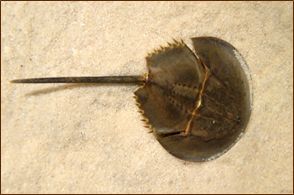|
|
|
|
|
SELANGOR, Malaysia, June 22, 2015 - (ACN Newswire) - Human activity is affecting the population of Asian horseshoe crabs in the state of Sabah in Malaysia, possibly by disrupting the male to female ratio - that is the conclusion of a study that surveyed two populations of Mangrove horseshoe crab (Carcinoscorpius rotundicauda) and studied their mating behaviour.
 | | Humans Threaten Asian Horseshoe Crabs |
Previous studies of horseshoe crabs in Malaysia have indicated that their population is in decline, but few studies have assessed the population in Sabah. The new study, conducted by researchers from the Universiti Malaysia Sabah and the Universiti Sains Malaysia, aimed to investigate the effects of human fishing on the populations of horseshoe crabs, and to learn more about the mating behaviour of these animals.
The researchers collected crabs from two sites: the first was a fishing site, and the second was a protected site. They compared the two populations by analysing the sizes of individuals and the sex ratio.
They found that the crabs from the two sites did not differ noticeably in their body size, although the females at both sites were larger than the males. However, the ratio of males to females did differ: at the protected site, males outnumbered females by 2.58 to 1, whereas at the fishing site, the ratio was closer to 5.5 males per female. The researchers speculate that the lower proportion of females at the fishing site could result from females being caught in fishing nets; their larger bodies make them more susceptible than males.
The team also studied the mating behaviour of the crabs by monitoring small populations in three tanks in which the male to female sex ratios were different: 1:1, 2:1 and 4:1, respectively. Over 30 days, the most successful mating events occurred in the tank in which the number of males and females was equal. Mating success for females was also dependent on body size: the largest females mated more frequently.
The observations indicate that disruption of the sex ratio at the fishing site could affect the future of the horseshoe crab population. With fewer females, fewer successful mating events are likely, threatening a decline in the population. The authors conclude that studies of more populations in the region will build on their work and determine the appropriate measures to conserve horseshoe crab populations.
For more information about each research, please contact:
Roberto Rolando
Biotechnology Research Institute,
Universiti Malaysia Sabah
Jalan UMS, 88400 Kota Kinabalu, Malaysia
Email: rolando.robert211@gmail.com
Mobile: +6019 5342 471
About Pertanika Journal of Tropical Agricultural Science (JTAS)
Pertanika Journal of Tropical Agricultural Science (JTAS) is published by Universiti Putra Malaysia in English and is open to authors around the world regardless of nationality. Beginning 2012, it would be published four times a year in February, May, August and November. Other Pertanika series include Pertanika Journal of Science & Technology (JST), and Pertanika Journal of Social Sciences & Humanities (JSSH).
JTAS aims to provide a forum for high quality research related to tropical agricultural research. Areas relevant to the scope of the journal include: agricultural biotechnology, biochemistry, biology, ecology, fisheries, forestry, food sciences, entomology, genetics, microbiology, pathology and management, physiology, plant and animal sciences, production of plants and animals of economic importance, and veterinary medicine. The journal publishes original academic articles dealing with research on issues of worldwide relevance.
Website: http://www.pertanika.upm.edu.my/
The paper is available from this link: http://bit.ly/1QLfchp
For more information about the journal, contact:
The Chief Executive Editor (UPM Journals)
Head, Journal Division, UPM Press
Office of the Deputy Vice Chancellor (R&I)
IDEA Tower 2, UPM-MDTC Technology Centre
Universiti Putra Malaysia
43400 Serdang, Selangor
Malaysia.
Phone: +603 8947 1622 | +6016 217 4050
Email: nayan@upm.my
Press release distributed by ResearchSEA for Pertanika Journal.
Topic: Research and development
Source: Pertanika Journal
Sectors: Daily Finance, Science & Research, Daily News
https://www.acnnewswire.com
From the Asia Corporate News Network
Copyright © 2024 ACN Newswire. All rights reserved. A division of Asia Corporate News Network.
|
|
|
|

|
|
|
|